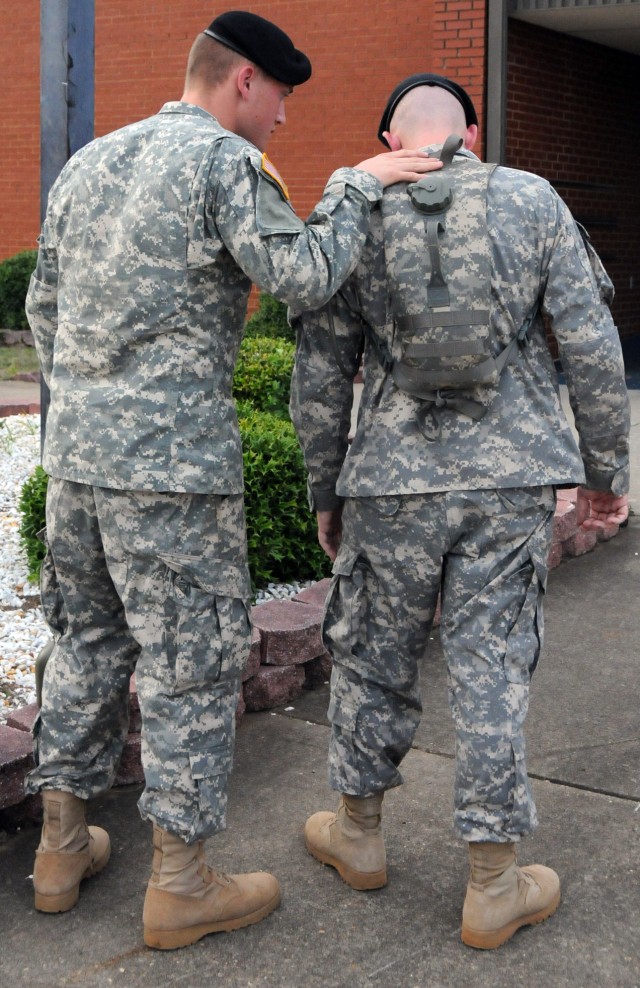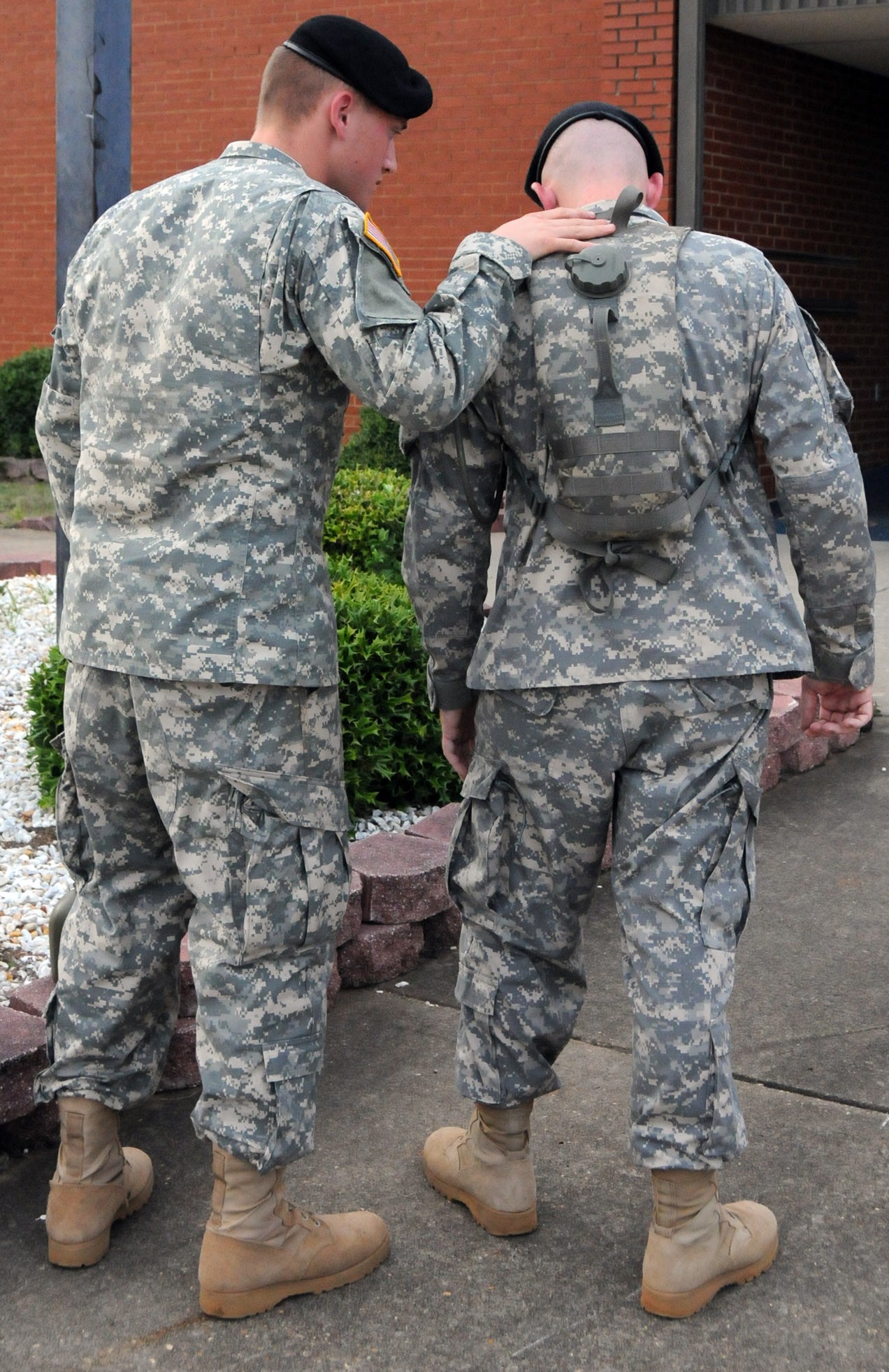FORT RUCKER, Ala. -- Having a battle buddy can be a life-saver beyond the battlefield because not all wounds are visible.
That's why unit commanders like Capt. Cameron Albert, A Company, 1st Battalion, 13th Aviation Regiment commander, encourage Soldiers to get to know their battle buddies and confide in them when times get tough.
"It's really as simple as asking a couple of questions like 'are you OK'' or 'Do you want to talk about it''," he said. "I try to make the Soldiers in advanced individual training feel like they can trust me with any issue. If they need to talk about anything, my door's always open."
Albert said the responsibility for looking out for one another isn't just on the person who is feeling stressed, it's on the battle buddy, too.
"Soldiers who come through AIT find they sometimes carry the stress of (basic combat training) with them," Albert said. "It's important they don't keep it in because the pressure is only going to get worse."
Pvt. Branden Glover, A Co., 1st Bn., 13th Avn. Regt., experienced first-hand what it's like to be there for his battle buddy and fellow unit member, Pvt. Seth Martin, Aug. 23.
That morning, Martin received a phone call from his home in Louisiana letting him know a close friend had died in an accident. Glover stayed by his side as he made calls to friends and Family to get more details.
"I was really glad he was there for me," Martin said. "It was good for me that he listened to what I had to say about everything that was going on."
Glover and Martin have been battle buddies since the two went through basic training at Fort Benning, Ga. Helping each other through tough times is all part of life in the Army, Glover said.
"Being away from home is an added stress to everything else that's going on," Glover said. "Having someone to talk to and somebody you can depend on is a huge help."
Glover said he would advise anyone who finds themselves in a bad situation to talk it out with someone before taking any drastic actions.
Soldiers who have faced difficult situations during and after deployments also rely on battle buddies.
Warrant Officer Candidate Charles Thompson, Class 10-23, 1st Warrant Officer Company, remembered being attacked while in Iraq and being shaken up the day after the incident.
"Luckily, no one was injured during the incident, but everyone was feeling a bit on edge," Thompson said. "It took just one person to get us talking about it and that helped us all deal with what happened and get through it. In this situation, it was like having several battle buddies helping each other get through a rough moment."
It's important for Soldiers to have someone they can talk to who's closer to them personally than a company commander or a chaplain, said CW3 Michael Langille, 1st Warrant Officer Company senior training, advising and counseling officer.
"We should all have somebody we can confide in," Langille said. "When we have situations that are hard to get through, a buddy can help you come up with ideas and better solutions to the problem. It's a lot easier to talk to somebody you're close with than someone you don't know that well."
If a battle buddy begins exhibiting symptoms that appear worrisome, Soldiers should use the Army A.C.E. (Ask, Care, Escort) system or contact the chain of command. Never leave an at-risk buddy alone.


Social Sharing